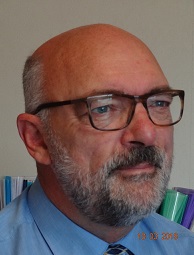About
How we became established
Project Periscope arose from analysis of data submitted by Registered Charities to Charities Services and held on the Charities Services database.
That data has been collected from the more than 27,000 Registered Charities in New Zealand since 2009. As system changes to the database have improved and organisations have become more familiar with the database, so the data being compiled has become increasingly accurate - and therefore useful.
Did you know:
- Registered Charities contribute the equivalent of nearly 7% of New Zealand’s GDP
- the NZ Government contributes over $5bn in grants and contract funding to enable the sector to deliver services
- individual New Zealanders and grant-making trusts collectively contribute more than $2.5bn in donations, grants and bequests.
- an estimated 180,000 New Zealanders govern Registered Charities as Trustees, Board members or Committee members
- nearly 7,000 Registered Charities have disappeared in the past 8 years – some legitimately because their work is done, or because they have been absorbed into another organisation; many because they have failed to submit annual returns and have simply disappeared; and a few that have been forcibly deregistered
- excluding restricted and endowment funds, Registered Charities carry on average around 9 months of equivalent operating cash and oversee more than $50bn in assets
- fundraising revenue has continued to rise year-on-year (despite the Global Financial Crisis)
- while part-time staff numbers are up, full-time numbers are down; and both staff and volunteers are contributing more time each week to their chosen Charity/ies
- new Charities are being created at an average rate of 16 per week
- more than 66% of all Registered Charities have an annual income of less than $100,000; and nearly 90% earn less than $500,000
- the smaller the Charity, the greater the likelihood of being in a state of comparative poverty - living hand-to-mouth
- the smaller the Charity, the greater the likelihood of funds being squirreled away rather than invested to grow the organisation to improve its ability to deliver services
- the sector cannot compete against other employment options, meaning there is too little ability to pay decent wages to attract competent staff
- funding and donations are biased towards investment in services, often to the detriment of being able to operate a sound organisation to support those services.
The more we explored, the more we came to the conclusion that the sector is like a giant iceberg, with the majority of activity sitting below the waterline and in a state of survival mode rather than demonstrating success. We equally began to realise the commonality between running successful organisations and parenting:
- if there is no form of 'organisational contraception' to govern growth, then there are inevitably too many orphans and impoverished children
- where there are too many mouths to feed, there’s a risk of some turning to any means whatsoever just to survive
- without adequate knowledge and skills, parents can only do what they think is right – whether it is or not
- the key to breaking the poverty trap is knowledge.
We started talking more and more about organisational parenting … moreover the need for parenting excellence … and specifically about the need for Supporting Community Organisation Parenting Excellence. That became our SCOPE.
We recognised the vital importance that Trustees, Board and Committee members of each organisation take regular time out from the day-to-day grind of survival, to take stock of the environment around them, just as a Submarine Captain does regularly but intermittently. And so, Project Periscope was born.




